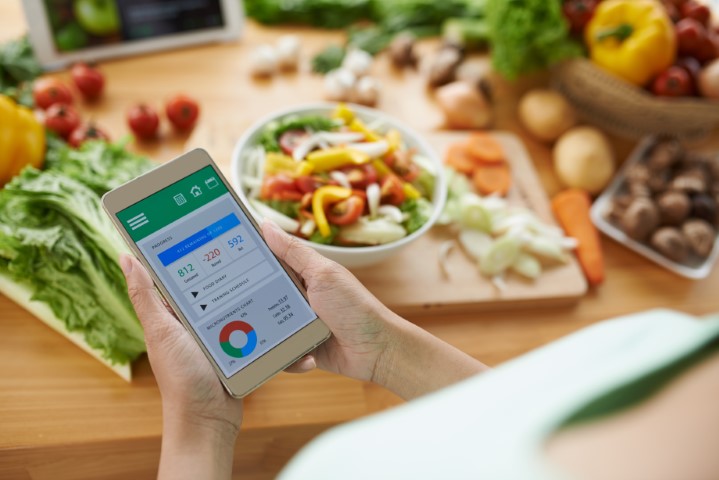
Agrifood Ketens & True Cost Pricing: samenwerking door transparantie en vertrouwen
Om de negatieve ecologische impact van voedsel productie en distributie te verminderen en tegelijkertijd een eerlijk inkomen voor boeren te garanderen, zijn Kortere Ketens van groot belang. In deze ketens worden zoel het aantal tussenpersonen als de afstand tussen procent en consument significant verminderd. Regionalisatie van het voedselsysteem maakt het daarnaast mogelijk ketens beter te sluiten (circulair), met minder voedsel verspilling, lagere milieu footprint en de ontwikkeling van nieuwe meervoudige verdienmodellen tot gevolg. Een True Cost Pricing mechanisme, waarin ook de maatschappelijk kosten zijn verdisconteert, is daarbij belangrijk om eerlijk prijzen te kunnen berekenen
Of het nu gaat om toegang tot marktinformatie, duurzaam voorraadbeheer, fijnmazig distributiemodellen, het monitoren van materiaal stromen of het simpelweg effectief samenwerken in ketens; al deze activiteiten vragen om het vertrouwd kunnen delen van data. Dat kent echter een aantal uitdagingen:
- gebrek aan vertrouwen tussen ketenpartners (gaan ze wel vertrouwd om met mijn data?)
- gebrek aan vertrouwen tussen boeren en overheid: producenten weigeren vaak bedrijfsdata te delen uit angst voor boetes of negatieve milieu-beleidsmaatregelen
- gebrek aan keten transparantie: de dominantie van grotere spelers staat leid tot onevenwichtige toegang tot informatie, met een oneerlijk verdeling van economische voordelen tot gevolg voor MKBérs.
- Beperkt toegang tot (big) data, AI en blockchain technologieën voor MKB’ers.
Om deze uitdagingen te tackelen ontwikkelen we in dit project een:
- Agrifood Data Common: Dit is een software platform met tools , applicaties en diensten wat een collectief bestuurd middel creëert om data te kunnen delen, managen en analyseren voor een community met een gemeenschappelijk doel. Dit biedt een goede basis voor meer transparantie en gelijkwaardiger positie van MKB bedrijven. Het platform maakt gebruik van Multi Party Computation met volledige homomorphic encryptie om het vertrouwen te borgen. Met MPC kunnen resultaten van analyses worden gedeeld zonder dat gevoelige data zelf gedeeld hoeft te worden. Om gebruiksgemak voor MKB’ers (niet technisch) te vergroten worden AI en Large Language Models toegevoegd en daarmee ook voor hen het gebruik van big data, AI mogelijk te maken.
- Donut Monitor Data model: Dit door het True Pricing – PPS ontwikkelde model zal in het in dit project toegepast en gevalideerd worden. Met dit model kan de toename in transparantie inzichtelijk worden gemaakt en een True Cost Pricing mechanisme in ketens worden opgenomen. Een self-sovereign identity-benadering voor de authenticatie van de verschillende gebruikers en IoT-apparaten in de keten zal deel uitmaken van dit project. Dit maakt o.a. productauthenticatie mogelijk om de oorsprong en inhoud van valideren, essentieel voor True Cost Pricing. Het stelt daarnaast producenten instaat hun producten onderscheidend te maken voor de markt, de voedselveiligheid in de keten te waarborgen en voorraadbeheer te verduurzamen.
Agrifood Supply Chain True Cost Pricing: enhancing transparency and trust
To reduce negative ecological impact of food production and distribution, while ensuring a fair income to farmers, Farm-to-Fork supply chains are important. In these chains the amount of intermediaries as well as the regional distance between producers and consumers is significantly reduced. This regionalization of the foodsystem also enables stakeholders to (circular) close chains, resulting in less food waste, lower environmental footprint and the development of new (multiple resourced) revenue models. True Cost Pricing models that monetarize societal as well as economic costs, are important to calculate fair prices.
Whether it's access to market information, sustainable stock management, fine-grained distribution models, monitoring material flows or simply effective collaboration in chains; all these activities require data sharing between stakeholders. However there are fundamental challenges to be addressed:
- Lack of trust between chain-partners that their data will be handled trusted and meticulously by others.
- Lack of trust between farmers and public authorities: monitoring of ecological impact (Co2 reduction, biodiversity, reduction of pesticides etc.) and validation of policy measures is impossible, because farmers are not willing to share sensitive operational and business intelligence fearing fines. (lack of reference data)
- Lack of chain-transparency: dominance of large (e.g. AgriTech firms) companies in agrifood chains , leads to unequal access to information for SME’s, resulting in an unfair division of economic benefits.
- Lack of access to big data, AI and blockchain technologies for SME’s to enable them to these to enhance their primary processes or develop new (multi revenue) business models
In this project we will develop:
- Agrifood Data Common (ADC): a software platform with applications, tools and services to create a governed resource for managing, analyzing, and sharing data with a community for common goals. The ADC offers a collective solution for better management of and control over essential data in (regional) Agrifood Supply Chains to create transparency and a level playing field for SME’s. The ADC will be based on Multi Party Computation combined with fully homomorphic encryption. This enables the sharing of analyses results, without sharing privacy or business sensitive data itself. AI and Large Language Models will be applied to enhance user centric solutions to enable SME’s to actually make operational use of insights from big data sources and AI technologies
- Donut Monitor Data Model: to monitor the increase of transparency a Donut Monitoring Data Model will be validated in order to establish a True Cost Pricing Mechanism. A self-sovereign identity approach for the authentication of the different users and IoT devices in the chain will be part this project enabling product authentication to validate the origin and contents of products, essential for True Cost Pricing. This also enables farmers to create Unique Selling Point features for regional food suppliers (o.a. production and sustainability features, lifestyle and personalized health information) and helps to ensure food safety, throughout the chain.
Partners:
BDVC / DVC Agri & Food
Linksight
University of Amsterdam
Green Innovation Hub
City of Almere




